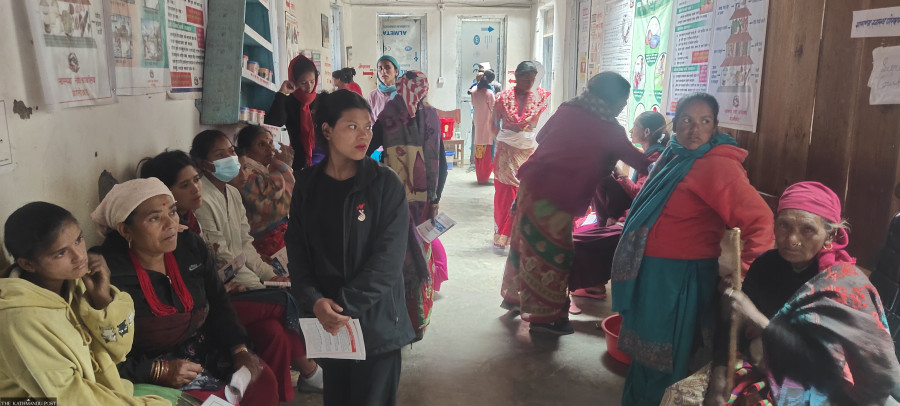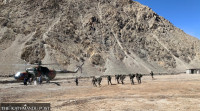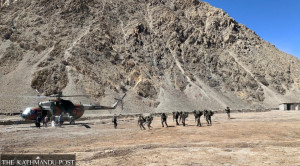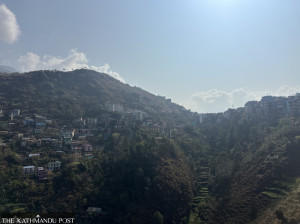Karnali Province
Measles cases in Kalikot concern doctors
The disease should be contained before it turns into an epidemic, health officials say.
Tularam Pandey
A nine-year-old boy and his brother, aged two, of Khadachakra Municipality-2 in Kalikot district suffered from high fever, red eyes, cough and rashes a month ago. After the children’s condition worsened, their parents took them to the district hospital on May 26. There already were two other people with similar symptoms at the hospital.
A medical team of Dr Sanket Bishwakarma at the hospital suspected that the children might have contracted measles. They collected swab samples from the four patients and sent them to the National Public Health Laboratory in Teku, Kathmandu. The test report on June 4 confirmed measles.
According to the District Health Office, the measles patients are from wards 1 and 2 of Khadachakra Municipality. They returned home following treatment.
“The children might not have been vaccinated against measles,” said Bishwakarma. “A campaign should be launched to identify the children who aren’t vaccinated and immunise them.”
Doctors suspect Kalikot, a hill district of Karnali Province, might be facing a measles outbreak. Seven other children from the same settlement as the four measles patients have shown similar symptoms. “Samples of those seven children were collected and sent to Teku for lab testing a few days ago. The report has yet to come,” said Katak Bahadur Mahat, public health officer at the District Health Office.
The seven children are currently receiving treatment at the district hospital.
According to Mahat, this is not the first measles outbreak in Kalikot. “Five years ago, seven children died of measles in the district. The disease is spreading in the district this year as well,” said Mahat. He warned that the disease should be contained before it becomes widespread.
Child health experts say low vaccination coverage, floating population, lack of public awareness of the importance of vaccines and apathy of the agencies for removing the loopholes are some of the reasons behind regular outbreaks of measles around the country.
Health authorities across the country provide two doses of the Measles-Rubella vaccine to children aged between nine and 15 months. The Ministry of Health and Population recently launched a nationwide door-to-door campaign to “search and inoculate” children who have missed out on routine immunisation. However, it is estimated that Kalikot has about 72 percent vaccination coverage against measles.
Measles was endemic in Nepal. An average of 90,000 cases were recorded yearly from 1994 to 2004. Routine measles vaccination began in 1979, starting with three districts. The campaign was extended nationwide after 10 years. Still, measles continues to stalk children across the country.
Measles is a contagious disease transmitted through fluids from the nose, mouth or throat of infected persons and through the air. The virus infects the respiratory tract and then spreads throughout the body. It remains a big cause of death among young children globally despite the availability of a safe and effective vaccine, according to the World Health Organisation.
Nepal is committed to eliminating measles by 2026. To declare a country as measles-free, the number of cases should be less than five per one million people throughout the year.




 9.83°C Kathmandu
9.83°C Kathmandu













